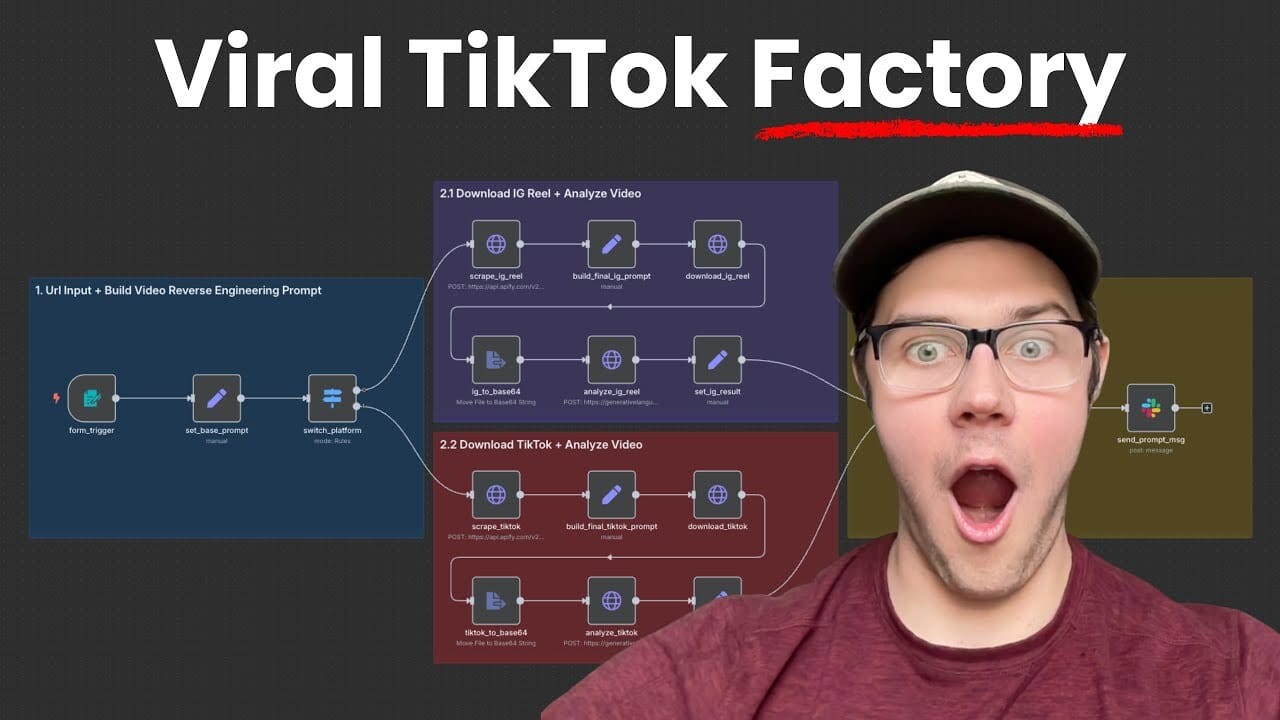- The Recap AI
- Posts
- Google's $2.4B heist derails OpenAI deal
Google's $2.4B heist derails OpenAI deal
PLUS: China’s new trillion-parameter model and Goldman Sachs hires an AI agent
Good morning, AI enthusiast.
The AI talent wars are escalating, with Google making a stunning move to hire the CEO and top researchers from AI coding startup Windsurf. The deal not only gives Google top talent but also derails a potential multi-billion dollar acquisition by rival OpenAI.
This creative 'acquihire' grants Google access to Windsurf's technology and expertise without the red tape of a formal merger. As Big Tech increasingly uses these massive talent deals to sidestep antitrust scrutiny, is this the new playbook for winning the AI race?
In today’s AI recap:
AI Training: How to clone ANY viral AI short form video (watch here)
Google’s $2.4B deal to hire Windsurf talent
China’s new trillion-parameter Kimi K2 model
Goldman Sachs pilots an AI software engineer
Intel spins out its RealSense vision unit
Google's $2.4B AI Heist

The Recap: In a stunning move, Google hired the CEO and key researchers from AI coding startup Windsurf, effectively derailing a potential $3B acquisition by rival OpenAI. The $2.4B deal gives Google top talent and licenses Windsurf's technology, escalating the AI talent wars.
Unpacked:
The unusual deal structure allows Google to absorb top talent without a formal acquisition and grants it a non-exclusive license to Windsurf’s technology.
Windsurf’s former CEO Varun Mohan and his team will join Google DeepMind to advance its work on agentic coding, primarily for the Gemini project.
This move mirrors a growing trend of "acquihire" deals in tech, where giants like Microsoft and Amazon absorb key startup personnel to gain an edge while avoiding regulatory reviews.
Bottom line: The battle for AI supremacy is now fought through massive and creative talent acquisitions, not just product launches. This strategy allows Big Tech to quickly integrate elite expertise and sidestep the lengthy antitrust scrutiny that comes with traditional mergers.
China's Trillion-Parameter Challenger

The Recap: Chinese AI lab Moonshot AI has released Kimi K2, a massive one-trillion-parameter open-source model. Built for advanced coding and agentic tasks, the model is already turning heads with its powerful performance and low cost.
Unpacked:
Kimi K2 sets a new standard for open-source code generation, scoring an impressive 65.8% on the SWE-Bench Verified benchmark.
The model uses a Mixture-of-Experts (MoE) architecture with 1 trillion total parameters and 32 billion active at any time, enabling high performance with greater efficiency.
It is both affordable—with pricing comparable to Gemini Flash—and immediately available on OpenRouter for developers to access via API.
Bottom line: This release significantly boosts the open-source ecosystem, offering a legitimate alternative to leading closed-source models for specific tasks. For builders, Kimi K2 is a powerful and accessible new tool for creating complex AI-driven applications.
AI Training
The Recap: In this video, I'm showing you how to build an AI automation using n8n, Apify, and Google Gemini’s API that will reverse engineer any viral video you give it. Just paste in a TikTok URL, and it will analyze the video and generates a detailed prompt you can feed into AI video generator like Veo3.
P.S We also launched a free community for AI Builders looking to master the art and science of building AI Automations — Come join us!
Wall Street Hires an AI Agent

The Recap: Goldman Sachs is piloting Devin, an autonomous AI software engineer from startup Cognition, to work directly alongside its 12,000 human developers. This marks a major milestone for deploying agentic AI in the high-stakes world of finance.
Unpacked:
Goldman plans to start with hundreds of Devin "employees" and is prepared to scale that number into the thousands based on performance.
Devin was created by the AI startup Cognition, which claims it built the world's first AI software engineer capable of handling complex, multi-step projects.
The goal is to create a "hybrid workforce" where Devin tackles tedious jobs like code maintenance, freeing up human engineers to focus on supervision and higher-level problem-solving.
Bottom line: The adoption of agentic AI by a top financial institution signals a significant shift from AI as a simple assistant to an autonomous teammate. This pilot will serve as a crucial test case for deploying AI in other complex, high-skilled roles across the industry.
Where AI Experts Share Their Best Work
Join our Free AI Automation Community
Join our FREE community AI Automation Mastery — where entrepreneurs, AI builders, and AI agency owners share templates, solve problems together, and learn from each other's wins (and mistakes).
What makes our community different:
Real peer support from people building actual AI businesses
Complete access to download our automation library of battle-tested n8n templates
Collaborate and problem-solve with AI experts when you get stuck
Dive into our course materials, collaborate with experienced builders, and turn automation challenges into shared wins. Join here (completely free).
Intel's Robotics Spin-Out

The Recap: Intel is spinning out its 3D computer vision venture, RealSense, into an independent company after securing a $50 million Series A funding round to accelerate innovation in physical AI.
Unpacked:
With a fresh $50 million in funding from investors including Intel Capital, the new company will be led by former Intel VP Nadav Orbach to expand product lines and meet growing demand.
The company’s technology enables physical AI by giving machines 3D perception, which is already used by customers like Unitree Robotics for autonomous robots and Chipotle for tracking inventory.
The move aligns with Intel's broader strategy to focus on its core business, similar to its decision to sell its stake in Altera, while letting RealSense pursue the rapidly growing robotics market.
Bottom line: This spin-out gives RealSense the agility to innovate faster in the specialized field of computer vision. It signals a major push to embed AI not just in software, but in the physical machines that interact with our world.
The Shortlist
Lawrence Livermore National Laboratory expanded its use of Anthropic's Claude for Enterprise to its entire staff of roughly 10,000, bolstering AI-powered research across nuclear deterrence, energy security, and computational biology.
Google introduced GenAI Processors, a new open-source Python library from DeepMind designed to simplify the construction of complex, stream-based multimodal applications using the Gemini API.
Researchers found severe flaws in 8 out of 10 popular AI agent benchmarks, including WebArena and SWE-bench, which can cause misestimations of an agent's true performance by up to 100%.
ETH Zurich announced a new fully open-source LLM developed with EPFL as part of the Swiss AI Initiative, which was trained on the "Alps" supercomputer and is designed for fluency in over 1,000 languages.
What did you think of today's email?Before you go we’d love to know what you thought of today's newsletter. We read every single message to help improve The Recap experience. |
Signing off,
David, Lucas, Mitchell — The Recap editorial team

